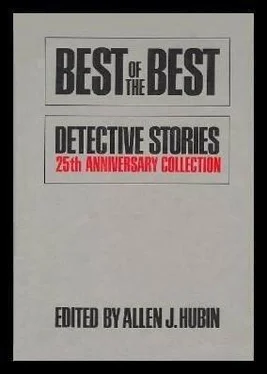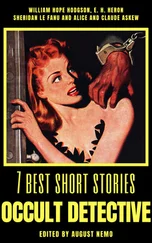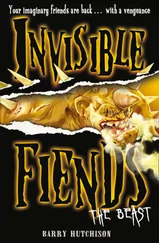Stephen Barr - Best of the best detective stories - 25th anniversary collection
Здесь есть возможность читать онлайн «Stephen Barr - Best of the best detective stories - 25th anniversary collection» весь текст электронной книги совершенно бесплатно (целиком полную версию без сокращений). В некоторых случаях можно слушать аудио, скачать через торрент в формате fb2 и присутствует краткое содержание. Город: New York, Год выпуска: 1971, ISBN: 1971, Издательство: E.P. Dutton & Co., Жанр: Детектив, на английском языке. Описание произведения, (предисловие) а так же отзывы посетителей доступны на портале библиотеки ЛибКат.
- Название:Best of the best detective stories: 25th anniversary collection
- Автор:
- Издательство:E.P. Dutton & Co.
- Жанр:
- Год:1971
- Город:New York
- ISBN:978-0-525-06450-3
- Рейтинг книги:5 / 5. Голосов: 1
-
Избранное:Добавить в избранное
- Отзывы:
-
Ваша оценка:
- 100
- 1
- 2
- 3
- 4
- 5
Best of the best detective stories: 25th anniversary collection: краткое содержание, описание и аннотация
Предлагаем к чтению аннотацию, описание, краткое содержание или предисловие (зависит от того, что написал сам автор книги «Best of the best detective stories: 25th anniversary collection»). Если вы не нашли необходимую информацию о книге — напишите в комментариях, мы постараемся отыскать её.
Best of the best detective stories: 25th anniversary collection — читать онлайн бесплатно полную книгу (весь текст) целиком
Ниже представлен текст книги, разбитый по страницам. Система сохранения места последней прочитанной страницы, позволяет с удобством читать онлайн бесплатно книгу «Best of the best detective stories: 25th anniversary collection», без необходимости каждый раз заново искать на чём Вы остановились. Поставьте закладку, и сможете в любой момент перейти на страницу, на которой закончили чтение.
Интервал:
Закладка:
“Miss Clarke, I–I want that half disme. I mean — I’d like to buy it from you,” said the Baroness.
“And I,” said Mr. Patch carefully, “would like to ah... purchase Washington’s sword.”
“The Diary ,” moaned Professor Shaw. “I’ll buy The Diary of Simeon Clarke from you. Miss Clarke!”
“I’ll be happy to sell it to you. Professor Shaw — as I said, I found it in the attic and I have it locked up in a highboy in the parlor at home. But as for the other two things...” Martha Clarke paused, and Ellery looked delighted. He thought he knew what was coming. “I’ll sell you the sword, Mr. Patch, and you the half disme, Baroness Tchek, providing—” and now Miss Clarke turned her clear eyes on Ellery “—providing you, Mr. Queen, will be kind enough to find them.”
And there was the farmhouse in the frosty Pennsylvania morning, set in the barren winter acres, and looking as bleak as only a little Revolutionary house with a mortgage on its head can look in the month of February.
“There’s an apple orchard over there,” said Nikki as they got out of Ellery’s car. “But where’s the grove of oaks? I don’t see any!” And then she added, sweetly: “Do you, Ellery?”
Ellery’s lips tightened. They tightened further when his solo on the front-door knocker brought no response.
“Let’s go around,” he said briefly; and Nikki preceded him with cheerful step.
Behind the house there was a barn; and beyond the barn there was comfort, at least for Ellery. For beyond the barn there were twelve ugly holes in the earth, and beside each hole lay either a freshly felled oak tree and its stump, or an ancient stump by itself, freshly uprooted. On one of the stumps sat an old man in earth-stained blue jeans, smoking a corncob pugnaciously.
“Tobias Clarke?” asked Ellery.
“Yump.”
“I’m Ellery Queen. This is Miss Porter. Your daughter visited me in New York yesterday—”
“Know all about it.”
“May I ask where Martha is?”
“Station. Meetin’ them there other folks.” Tobias Clarke spat and looked away — at the holes. “Don’t know what ye’re all comin’ down here for. Wasn’t nothin’ under them oaks. Dug ’em all up t’other day. Trees that were standin’ and the stumps of the ones that’d fallen years back. Look at them holes. Hired hand and me dug down most to China. Washin’ton’s Grove, always been called. Now look at it. Firewood — for someone else, I guess.” There was an iron bitterness in his tone. “We’re losin’ this farm. Mister, unless...” And Tobias Clarke stopped. “Well, maybe we won’t,” he said. “There’s always that there book Martha found.”
“Professor Shaw, the rare-book collector, offered your daughter two thousand dollars for it if he’s satisfied with it, Mr. Clarke,” said Nikki.
“So she told me last night when she got back from New York,” said Tobias Clarke. “Two thousand — and we need six.” He grinned, and he spat again.
“Well,” said Nikki sadly to Ellery, “that’s that.” She hoped Ellery would immediately get into the car and drive back to New York — immediately.
But Ellery showed no disposition to be sensible. “Perhaps, Mr. Clarke, some trees died in the course of time and just disappeared, stumps, roots, and all. Martha—” Martha! “— said the Diary doesn’t mention the exact number Washington planted here.”
“Look at them holes. Twelve of ’em, ain’t there? In a triangle. Man plants trees in a triangle, he plants trees in a triangle. Ye don’t see no place between holes big enough for another tree, do ye? Anyways, there was the same distance between all the trees. No, sir, Mister, twelve was all there was ever; and I looked under all twelve.”
“What’s the extra tree doing in the center of the triangle? You haven’t uprooted that one, Mr. Clarke.”
Tobias Clarke spat once more. “Don’t know much about trees, do ye? That’s a cherry saplin’ I set in myself six years ago. Ain’t got nothin’ to do with George Washin’ton.”
Nikki tittered.
“If you’d sift the earth in those holes—”
“I sifted it. Look, Mister, either somebody dug that stuff up a hundred years ago or the whole yarn’s a Saturday night whopper. Which it most likely is. There’s Martha now with them other folks.” And Tobias Clarke added, spitting for the fourth time: “Don’t let me be keepin’ ye.”
“It reveals Washington rather er... out of character,” said James Ezekiel Patch that evening. They were sitting about a fire in the parlor, as heavy with gloom as with Miss Clarke’s dinner; and that, at least in Miss Porter’s view, was heavy indeed. Baroness Tchek wore the expression of one who is trapped in a cave; there was no further train until morning, and she had not yet resigned herself to a night in a farmhouse bed. The better part of the day had been spent poring over The Diary of Simeon Clarke , searching for a clue to the buried Washingtonia. But there was no clue; the pertinent passage referred merely to “a Triangle of Oake Trees behinde the red Barn distant fifteen yards one from the other, which His Excellency the President did plant with his own Hands, as he had promised me, and then did burie his Sworde and the Half Disme for his Pleasure in a Case of copper beneathe one of the Oakes, the which, he said, (the Case) had been fashioned by Mr. Revere of Boston who is experimenting with this Mettle in his Furnasses.”
“How out of character, Mr. Patch?” asked Ellery. He had been staring into the fire for a long time, scarcely listening.
“Washington wasn’t given to romanticism,” said the large man dryly. “No folderol about him. I don’t know of anything in his life which prepares us for such a yarn as this. I’m beginning to think—”
“But Professor Shaw himself says the Diary is no forgery!” cried Martha Clarke.
“Oh, the book’s authentic enough.” Professor Shaw seemed unhappy. “But it may simply be a literary hoax, Miss Clarke. The woods are full of them. I’m afraid that unless the story is confirmed by the discovery of that copper case with its contents...”
“Oh, dear,” said Nikki impulsively; and for a moment she was sorry for Martha Clarke, she really was.
But Ellery said: “I believe it. Pennsylvania farmers in 1791 weren’t given to literary hoaxes. Professor Shaw. As for Washington, Mr. Patch — no man can be so rigidly consistent. And with his wife just recovering from an illness — on his own birthday...” And Ellery fell silent again.
Almost immediately he leaped from his chair. “Mr. Clarke!”
Tobias stirred from his dark corner. “What?”
“Did you ever hear your father, or grandfather — anyone in your family — talk of another barn behind the house?”
Martha stared at him. Then she cried: “Papa, that’s it! It was a different barn, in a different place, and the original Washington’s Grove was cut down, or died—”
“Nope,” said Tobias Clarke. “Never was but this one barn. Still got some of its original timbers. Ye can see the date burned into the crosstree 1761.”
Nikki was up early. A steady hack-hack-hack borne on frosty air woke her. She peered out of her back window, the coverlet up to her nose, to see Mr. Ellery Queen against the dawn, like a pioneer, wielding an ax powerfully.
Nikki dressed quickly, shivering, flung her mink-dyed muskrat over her shoulders, and ran downstairs, out of the house, and around it past the barn.
“Ellery! What do you think you’re doing? It’s practically the middle of the night!”
“Chopping,” said Ellery, chopping.
“There’s mountains of firewood stacked against the barn,” said Nikki. “Really, Ellery, I think this is carrying a flirtation too far.” Ellery did not reply. “And anyway, there’s something — something gruesome and indecent about chopping up trees George Washington planted. It’s vandalism.”
Читать дальшеИнтервал:
Закладка:
Похожие книги на «Best of the best detective stories: 25th anniversary collection»
Представляем Вашему вниманию похожие книги на «Best of the best detective stories: 25th anniversary collection» списком для выбора. Мы отобрали схожую по названию и смыслу литературу в надежде предоставить читателям больше вариантов отыскать новые, интересные, ещё непрочитанные произведения.
Обсуждение, отзывы о книге «Best of the best detective stories: 25th anniversary collection» и просто собственные мнения читателей. Оставьте ваши комментарии, напишите, что Вы думаете о произведении, его смысле или главных героях. Укажите что конкретно понравилось, а что нет, и почему Вы так считаете.












